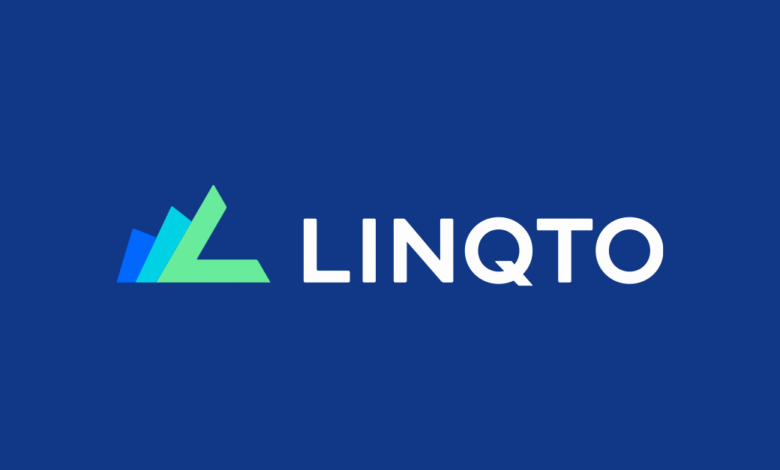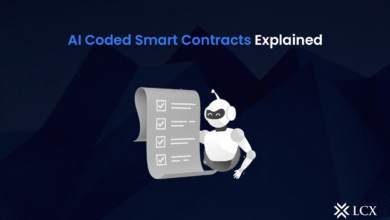Linqto Bankruptcy: Implications for Private Equity Access

Linqto’s recent Chapter 11 bankruptcy filing has sent shockwaves through the private equity landscape, revealing deep-rooted structural flaws and external regulatory pressures. As a platform that claims to enhance investor ownership rights by providing access to private investments, Linqto’s predicament could undermine confidence in similar platforms. The announcement on July 8, made in the U.S. Bankruptcy Court for the Southern District of Texas, signifies a strategic decision aimed at safeguarding asset values while restructuring Linqto’s operations. With up to $60 million in debtor-in-possession financing from Sandton Capital Partners, Linqto plans to continue limited business activities amidst its reorganization efforts. This development is pivotal in understanding how such legal complexities may impact private equity access and investor rights moving forward.
The recent turmoil surrounding Linqto’s financial troubles highlights significant concerns over its operational stability and regulatory compliance. This filing for voluntary bankruptcy under Chapter 11 is a critical intervention aimed at recalibrating the company’s structure and addressing the challenges posed by current market conditions. Investor access to private equity is a key theme here, as it raises questions about ownership rights and the overall integrity of the investment platform. Amidst ongoing legal scrutiny, Linqto’s potential turnaround is being watched closely by both investors and regulatory bodies, keen to assess the implications of this restructuring process. As the platform navigates through these turbulent waters, the continued availability and reliability of private equity investment opportunities remain at stake.
Understanding Linqto’s Chapter 11 Bankruptcy Filing
Linqto’s decision to file for Chapter 11 bankruptcy marks a crucial turning point for the company and its investors. This restructuring process aims to address the significant operational challenges that the platform has faced. The Chapter 11 bankruptcy filing enables Linqto to reorganize its debts while continuing business operations, which is pivotal for maintaining investor confidence in a time of instability. It provides an avenue to potentially rectify serious claims of regulatory violations, which could ultimately protect investor ownership rights in the long term.
The implications of Linqto’s bankruptcy filing go beyond immediate financial distress; they reflect an underlying issue in the private equity access market. Investors seeking opportunities in private pre-IPO companies may be wary of similar platforms due to the observed regulatory pressures and the inherent flaws in operational practices highlighted by Linqto. This situation underscores the need for transparency and robust compliance mechanisms within investment platforms, so investors can feel secure about their ownership rights and financial engagements.
The Impact on Investor Ownership Rights
Linqto’s bankruptcy raises profound concerns regarding investor ownership rights and the integrity of private equity access. As the company re-evaluates its structure, the discussions surrounding the true extent of what customers own become critical. Investors who engaged with Linqto may find themselves questioning the legitimacy of their investments and ownership claims, particularly in light of ongoing investigations by regulatory bodies. Such uncertainties can dissuade potential investors from actively engaging in similar platforms in the future.
In navigating through Chapter 11 proceedings, Linqto has an opportunity to address these concerns and restore investor trust. By working closely with regulators, the company can clarify its operational practices and ownership structures, ensuring compliance with securities laws. This transparency could not only benefit Linqto but also lead to improved standards across the private equity access industry, where investor ownership rights are paramount. The outcome of this process could set precedents that influence how ownership rights are perceived and upheld in future investment scenarios.
Restructuring Efforts and Future of Linqto
The appointment of Jeffrey S. Stein as Chief Restructuring Officer signals a strategic move for Linqto as it navigates the complexities of Chapter 11 bankruptcy. His expertise will guide the company through essential restructuring efforts, which are aimed at stabilizing operations and addressing the regulatory pressures that have arisen. This oversight is crucial for refocusing the company’s mission on providing reliable access to private equity investments while ensuring compliance with necessary legal frameworks.
Moreover, the financial support from Sandton Capital Partners through debtor-in-possession financing exemplifies confidence in Linqto’s ability to emerge stronger post-restructuring. As Linqto undertakes this transformative journey, stakeholders will be closely monitoring developments that affect not only the company’s future but also the broader landscape of private equity access. Success in these restructuring efforts will likely enhance investor confidence and could foster a more structured, transparent environment for accessing private pre-IPO companies.
The Role of Regulatory Oversight in Restructuring Linqto
Regulatory bodies play a critical role in overseeing Linqto’s restructuring process, especially given the serious allegations of securities law violations that have emerged. The scrutiny from the U.S. Securities and Exchange Commission and other authorities will ensure that Linqto addresses the legal challenges appropriately while aiming to safeguard the rights of its investors. Collaboration with these regulators can potentially strengthen Linqto’s operational framework and clarify the company’s standing relative to its past operations.
As Linqto engages in restructuring, it will likely refine its compliance and operational practices to align better with regulatory expectations. This process can serve not only to rectify current deficiencies but also to establish a stronger foundation for sustainable growth in the future. The emphasis on regulatory compliance will hopefully reassure investors of their ownership rights, as the company works towards resolving ongoing investigations and enhancing its commitment to ethical practices within the private equity market.
Linqto News: Latest Updates on the Bankruptcy Situation
Recent news regarding Linqto’s bankruptcy has highlighted several critical developments since the filing. The company’s effort to stabilize its operations through financial backing and strategic management changes has garnered attention as investors seek clarity in an uncertain environment. This ongoing situation illustrates the dynamic nature of the private equity market and the resilience that investment platforms must exhibit amidst economic fluctuations and regulatory challenges.
Media coverage and Linqto’s public communications are pivotal in shaping investor perceptions and understanding of the company’s reorganization efforts. Keeping stakeholders informed about significant milestones and restructuring strategies can help rebuild trust and confidence among current and potential investors. As Linqto navigates its Chapter 11 proceedings, ongoing updates will be crucial in framing the narrative around investor ownership rights and the overall stability of the platform.
Examining Private Equity Access in Light of Linqto’s Challenges
Linqto’s recent challenges shine a spotlight on the broader issues facing private equity access platforms. Investors looking for entry into private markets might find themselves hesitant in light of Linqto’s bankruptcy, prompting discussions about the transparency and reliability of peer platforms. These incidents underscore the importance of establishing higher compliance standards and ensuring investors are well-informed about their engagement terms and the Direct Ownership Rights involved.
As Linqto restructures, it opens up a necessary dialogue about the future of private equity access. The investment community must address the gaps in customer understanding concerning ownership claims and rights. Initiatives that promote education and transparency in the private equity space can empower investors, ensuring they make informed choices while navigating these challenging market dynamics.
Potential Repercussions for Private Equity Investment Platforms
The bankruptcy filing by Linqto could have ripple effects across the private equity investment landscape. Market analysts and investors alike are closely monitoring how this situation unfolds and the results it may yield in terms of industry norms and practices. This scenario might result in increased scrutiny and demands for accountability from similar platforms, setting a precedent for future regulatory measures.
Furthermore, as Linqto’s restructuring unfolds, it may serve as a cautionary tale for other private equity access platforms. Companies in this sector may be compelled to revisit their operational structures and compliance frameworks, ensuring they mitigate the risks of facing similar challenges. Ultimately, Linqto’s path forward could significantly influence how private equity investment platforms navigate regulatory environments while sustaining investor trust.
Linqto’s Leadership Response to Bankruptcy Filing
The leadership at Linqto, particularly CEO Dan Siciliano, plays an instrumental role in navigating the crisis presented by the Chapter 11 bankruptcy filing. His candid acknowledgment of the operational challenges and regulatory pressures facing the company is indicative of a proactive approach in fostering transparency with stakeholders. By addressing these issues upfront, Linqto’s leadership aims to stabilize the organization and reassure investors during this turbulent phase.
Moreover, Linqto’s leadership has taken steps to engage with both internal and external stakeholders, fostering a collaborative approach to the restructuring process. This initiative not only empowers employees but also involves investors in a more meaningful dialogue about the company’s future. By reaching out to investors and regulators alike, Linqto’s leadership demonstrates commitment to rectifying past mistakes and a willingness to rebuild trust and confidence in a challenging business environment.
Strategic Insights for Future Investors Post-Linqto Bankruptcy
The aftermath of Linqto’s Chapter 11 bankruptcy filing presents valuable insights for potential investors in the private equity space. Investors must approach engagements with platforms critically, taking into consideration the associated risks and understanding the structures that govern ownership rights. This situation serves as a reminder of the importance of comprehensive due diligence and awareness of the regulatory frameworks that dictate private equity investments.
Future investors can leverage the learnings from Linqto’s experience to demand greater transparency and accountability from private equity access platforms. By prioritizing platforms that demonstrate robust compliance practices and clear communication around ownership rights, investors can mitigate risks inherent in the investment landscape. As the industry evolves in the wake of Linqto’s challenges, such strategic insights will be crucial in fostering a more secure and informed investing environment.
Frequently Asked Questions
What does Linqto’s Chapter 11 bankruptcy filing mean for investor ownership rights?
Linqto’s Chapter 11 bankruptcy filing brings significant concerns about investor ownership rights, especially given the structural flaws and regulatory pressures affecting the company. The reorganization aims to address these issues, but investors may face uncertainties regarding their claims and real ownership in securities offered by Linqto.
How will Linqto’s bankruptcy impact access to private equity investments?
The restructuring process initiated by Linqto’s Chapter 11 bankruptcy could disrupt traditional access to private equity investments. As the company reorganizes under judicial supervision, investors may encounter delays or changes in how they engage with private pre-IPO companies through the platform.
What restructuring plans does Linqto have following its bankruptcy filing?
Following its Chapter 11 bankruptcy filing, Linqto is focused on developing a comprehensive restructuring plan aimed at addressing operational challenges and regulatory compliance issues. The appointment of a Chief Restructuring Officer signals a commitment to transforming its business practices and safeguarding asset values.
What caused Linqto to file for Chapter 11 bankruptcy?
Linqto filed for Chapter 11 bankruptcy due to serious allegations of securities law violations and ongoing investigations from regulatory bodies. The company highlighted critical flaws in its corporate structure that posed challenges to its operational viability, prompting the need to restructure effectively under bankruptcy protection.
How much financing has Linqto secured to navigate its bankruptcy situation?
Linqto has secured up to $60 million in debtor-in-possession financing from Sandton Capital Partners. This funding is intended to support essential business operations as the company undergoes restructuring following its Chapter 11 bankruptcy filing.
What should investors know about Linqto news related to its bankruptcy?
Investors should stay informed about Linqto news regarding the company’s Chapter 11 bankruptcy, as it provides critical updates on the restructuring process, impacts on investor rights, and potential changes to the private equity access landscape. Monitoring these developments is crucial for understanding their investment positions and future engagement with Linqto.
How does Linqto’s bankruptcy influence its relationship with Ripple and XRP?
Linqto’s bankruptcy has sparked confusion about its ties to Ripple, particularly regarding claims affecting XRP. Ripple’s CEO has distanced the company from Linqto, clarifying that the bankruptcy does not impact XRP or Ripple’s business, which aims to reassure investors amid the upheaval caused by Linqto’s legal issues.
| Key Points | Details |
|---|---|
| Filing for Chapter 11 Bankruptcy | Linqto filed for voluntary Chapter 11 bankruptcy on July 8, 2023, to restructure and protect asset value. |
| Reason for Filing | The company faces significant operational challenges due to alleged violations of securities laws and regulatory investigations. |
| Restructuring Goals | To address structural flaws and restore investor confidence in ownership rights within private equity access platforms. |
| Key Leadership Change | Jeffrey S. Stein appointed as Chief Restructuring Officer to guide Linqto through the bankruptcy process. |
| Funding Amidst Bankruptcy | Linqto has secured $60 million in debtor-in-possession financing from Sandton Capital Partners to support operations during restructuring. |
| Ripple’s Clarification | Ripple CEO Brad Garlinghouse clarified that Ripple’s relationship with Linqto is limited to shareholding and does not affect XRP. |
Summary
Linqto’s bankruptcy filing highlights the critical challenges that the company faces within the private equity access sector. This Chapter 11 bankruptcy raises significant concerns regarding the operational sustainability of Linqto and the implications it may have on investor rights. The restructuring process aims to not only address inherent flaws within the company’s operations but also restore faith among investors in the private equity market. As Linqto navigates this challenging phase, the outcomes will likely influence the future landscape of private equity investment.




